
Studies in Self-Access Learning Journal
Scope & Guideline
Empowering educators through cutting-edge research.
Introduction
Aims and Scopes
- Self-Access Language Learning:
Explores the concept and implementation of self-access learning centers, promoting learner autonomy and offering resources that facilitate independent language study. - Learner Autonomy and Self-Directed Learning:
Investigates methods and strategies to enhance learner autonomy, including the use of technology and advising practices that support self-directed language learning. - Advising and Support Practices:
Focuses on effective advising models that complement language learning, emphasizing the role of advisors in fostering self-regulated learning and motivation among students. - Technology Integration in Language Learning:
Examines the impact of digital tools and platforms on language acquisition, including mobile applications, online resources, and innovative pedagogical approaches. - Research on Language Learning Strategies:
Analyzes various language learning strategies and their effectiveness in promoting learner engagement, motivation, and success in both formal and informal contexts.
Trending and Emerging
- Digital and Mobile Learning Tools:
An increasing focus on the use of digital platforms and mobile applications for language learning, highlighting their role in facilitating self-directed study and engagement. - Holistic Approaches to Learner Autonomy:
Emerging research that integrates various aspects of learner autonomy, including emotional, social, and cognitive dimensions, to create a more comprehensive understanding of self-directed learning. - Impact of the Pandemic on Learning Practices:
A notable trend examining how the COVID-19 pandemic has influenced self-access learning practices, leading to innovative adaptations and the exploration of online and hybrid learning environments. - Collaboration and Community in Learning:
Research emphasizing collaborative learning experiences and the importance of community support in fostering autonomy and motivation among language learners. - AI and Adaptive Learning Technologies:
A growing interest in the application of artificial intelligence and adaptive learning technologies in language education, exploring how these tools can enhance personalized learning experiences.
Declining or Waning
- Traditional Classroom Learning:
There is a noticeable decline in research focused on conventional classroom-based language learning, as the journal shifts towards more innovative and autonomous learning practices. - Non-Digital Learning Resources:
Themes centered around non-digital resources and methodologies are waning, likely due to the increasing emphasis on technology-enhanced learning environments. - General Language Teaching Methodologies:
Broad discussions on general teaching methodologies are becoming less common, with a shift towards specific strategies that support self-directed and autonomous learning. - Static Learning Environments:
Research that focuses on fixed learning environments, such as traditional language labs, is decreasing as the journal embraces more dynamic and flexible learning contexts. - Passive Learning Strategies:
There is a reduction in the exploration of passive learning strategies, with a growing focus on active engagement and participatory learning approaches.
Similar Journals

FOREIGN LANGUAGE ANNALS
Fostering Innovation in Language AcquisitionForeign Language Annals is a prestigious academic journal published by Wiley, dedicated to advancing the field of linguistics and language studies. Since its inception in 1967, the journal has established itself as a vital resource for researchers, professionals, and students interested in the evolving dynamics of foreign language education and acquisition. With an impressive impact factor that places it in the Q1 category for Linguistics and Language in 2023, Foreign Language Annals ranks 48th out of 1167 journals in its domain, showcasing its influence and reach within the scientific community. Through a diverse range of scholarly articles and research findings, the journal aims to foster innovation and best practices in language instruction and pedagogy. Although not open access, it remains accessible to a broad readership, offering invaluable insights for those striving to improve language education and understanding across cultures.
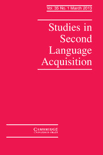
STUDIES IN SECOND LANGUAGE ACQUISITION
Navigating the evolving landscape of second language studies.STUDIES IN SECOND LANGUAGE ACQUISITION, published by Cambridge University Press, is a premier journal dedicated to advancing the field of second language acquisition. With an ISSN of 0272-2631 and an E-ISSN of 1470-1545, this journal has carved its niche as a leading resource for scholars and practitioners alike since 1978. Recognized in Q1 quartiles across both Education and Linguistics and Language, and ranked within the top 2% in its fields according to Scopus, it provides a platform for cutting-edge research that addresses the complexities of language learning and teaching. Although it does not currently offer open access, the journal remains widely accessible through institutional subscriptions, ensuring that groundbreaking research reaches a global audience. With a focus on empirical studies, theoretical discussions, and innovative methodologies, STUDIES IN SECOND LANGUAGE ACQUISITION is essential for those seeking to deepen their understanding of language education, making it a must-read for researchers, educators, and students committed to the evolving landscape of language acquisition.
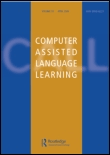
Computer Assisted Language Learning
Transforming Language Learning Through TechnologyComputer Assisted Language Learning is a prestigious journal dedicated to the interdisciplinary field of language education technology, published by Routledge Journals, Taylor & Francis Ltd. With its ISSN 0958-8221 and E-ISSN 1744-3210, the journal has become a cornerstone for researchers and practitioners interested in the innovative integration of computer technology in language learning processes. As of 2023, it holds an impressive impact factor, ranking Q1 in both Computer Science Applications and Linguistics and Language categories, indicating its significance within these scholarly domains. The journal covers a wide array of subjects, including language acquisition, educational technology, and instructional design, facilitating an understanding of how digital tools can enhance language learning experiences. Its rigorous editorial standards ensure that published articles undergo thorough peer review, making it a highly respected platform for disseminating cutting-edge research. With an extensive publication history dating back to 1990 and an ongoing commitment to exploring the dynamics of language learning in digital contexts, this journal is essential for academics, educators, and students alike who are looking to stay at the forefront of research in computer-assisted language education.
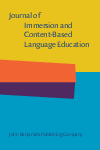
Journal of Immersion and Content-Based Language Education
Fostering Global Dialogue in Immersive Language EducationJournal of Immersion and Content-Based Language Education, published by JOHN BENJAMINS PUBLISHING CO, is a leading academic journal dedicated to the fascinating intersection of language education and immersive learning experiences. With its ISSN 2212-8433 and E-ISSN 2212-8441, the journal has carved a prominent niche in both the Education and Linguistics fields, earning a Q2 ranking in Education and a prestigious Q1 ranking in Linguistics, as noted in 2023. Situated in the Netherlands, this journal caters to a global audience, offering access to cutting-edge research and methodologies in content-based language instruction. Committed to fostering scholarly dialogue, the Journal of Immersion and Content-Based Language Education empowers researchers, educators, and students alike to explore innovative practices and theoretical frameworks. With a Scopus ranking reflecting its impact in the field—#196/1088 in Language and Linguistics at the 82nd percentile and #807/1543 in Education—this journal is a vital resource for those committed to enhancing linguistic education through immersive methodologies.
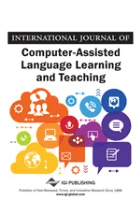
International Journal of Computer-Assisted Language Learning and Teaching
Fostering dialogue on computer-assisted methodologies.Welcome to the International Journal of Computer-Assisted Language Learning and Teaching, a premier publication by IGI Global dedicated to advancing the interdisciplinary research at the intersection of linguistics, education, and computer science. With an ISSN of 2155-7098 and an E-ISSN of 2155-7101, this journal aims to provide a platform for innovative studies on the implementation and effectiveness of technology in language learning and teaching. The journal has earned notable recognition within its field, securing a Q1 ranking in Linguistics and Language and strong placements across several categories in the 2023 Scopus Ranks, including a Q3 classification in Computer Science Applications and Computer Vision and Pattern Recognition. Researchers and educators are encouraged to contribute their findings to foster dialogue around effective computer-assisted methodologies and instructional practices. Although the journal is not open access, it remains a vital resource for researchers, professionals, and students seeking to enhance the efficacy of language education through technological innovation.
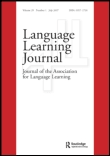
Language Learning Journal
Exploring the frontiers of language learning methodologies.Welcome to the Language Learning Journal, a premier resource for researchers, educators, and linguists alike, published by Routledge Journals, Taylor & Francis Ltd. With a proud history dating back to 1990 and commitment to advancing the exploration of language acquisition, this esteemed journal boasts an impressive impact factor within Q1 rankings across both the Education and Linguistics and Language categories. Ranked #40 in Language and Linguistics and achieving a 96th percentile in the Arts and Humanities, the journal serves as a crucial platform for disseminating cutting-edge research, innovative methodologies, and impactful discussions in the field of language learning. Although currently not offered as an open access publication, the depth and quality of content ensure significant contributions to the body of knowledge for professionals and scholars. With its global reach, the Language Learning Journal is dedicated to fostering the development and understanding of language learning processes, enabling readers to stay informed about the latest trends and findings through rigorous peer-reviewed articles.

TECHNOLOGY IN SOCIETY
Examining the Ripple Effects of Innovation on SocietyTechnology in Society, published by Elsevier Science Ltd, is a premier journal dedicated to exploring the interplay between technological advancements and their societal implications. With an ISSN of 0160-791X and an E-ISSN of 1879-3274, this journal has established itself as a pivotal resource since its inception in 1979. The journal's impact factor and its prestigious Q1 ranking in categories including Business and International Management, Education, Human Factors and Ergonomics, and Sociology and Political Science underscore its significance in fostering high-quality scholarship. The journal aims to publish articles that critically examine the multifaceted effects of technology on society, making it essential reading for academics, practitioners, and policy-makers alike. As it continues to evolve through 2024, Technology in Society remains committed to disseminating important research that drives understanding and dialogue in today’s technology-driven landscape.
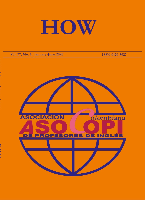
How-A Colombian Journal for Teachers of English
Bridging Theory and Practice in Language Education.How: A Colombian Journal for Teachers of English is a prestigious, peer-reviewed publication dedicated to advancing the field of English language teaching in Colombia and beyond. Established by the ASOC COLOMBIANA PROFESORES INGLES, this journal has embraced an Open Access model since 2014, ensuring that innovative research and teaching methodologies are accessible to a global audience. With a focus on pedagogical strategies, curriculum development, and language acquisition, How aims to foster community among educators, researchers, and practitioners dedicated to improving English language instruction. The journal's commitment to high-quality scholarship and practical applications makes it an indispensable resource for professionals seeking to enhance their teaching practices. Housed in Bogotá, Colombia, How reflects the dynamic landscape of English education in Latin America, contributing significantly to both regional and international discourse.

English Teaching and Learning
Transforming English Learning with Scholarly ExcellenceEnglish Teaching and Learning is a distinguished academic journal published by SPRINGER SINGAPORE PTE LTD, focusing on the dynamic fields of education and linguistics. With an ISSN of 1023-7267 and an E-ISSN of 2522-8560, this journal serves as a vital platform for researchers, educators, and practitioners interested in advancing the understanding of English language instruction and learning methodologies. Recognized for its high standards, it has achieved a notable Q2 ranking in Education and a prestigious Q1 ranking in Linguistics and Language in 2023, underscoring its impact within these essential scholarly fields. The journal, which spans a converged publication period from 2015 to 2024, endeavors to disseminate innovative research, theoretical insights, and practical applications, making it an invaluable resource for anyone committed to enhancing English education globally. Although it does not operate under an open-access model, its contributions are pivotal in shaping contemporary discourse in English teaching and learning.
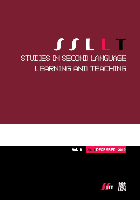
Studies in Second Language Learning and Teaching
Fostering dialogue in the realm of language learning.Studies in Second Language Learning and Teaching is a premier open-access journal dedicated to advancing research and scholarship in the fields of education, linguistics, and language acquisition. Published by ADAM MICKIEWICZ UNIVERSITY, KALISZ, this journal has consistently achieved high acclaim, reflected in its impressive Q1 rankings in both Education and Linguistics and Language categories for 2023. With a robust focus on innovative methods, effective pedagogical strategies, and interdisciplinary approaches, Studies in Second Language Learning and Teaching aims to facilitate dialogue among researchers, educators, and practitioners, fostering a deeper understanding of language learning and teaching in diverse contexts. Since its transition to open access in 2011, the journal has expanded its reach, providing valuable resources and research findings to a global audience. With an exceptional Scopus ranking placing it in the top percentiles across multiple categories, this journal stands as a crucial platform for the dissemination of ground-breaking research in second language education.